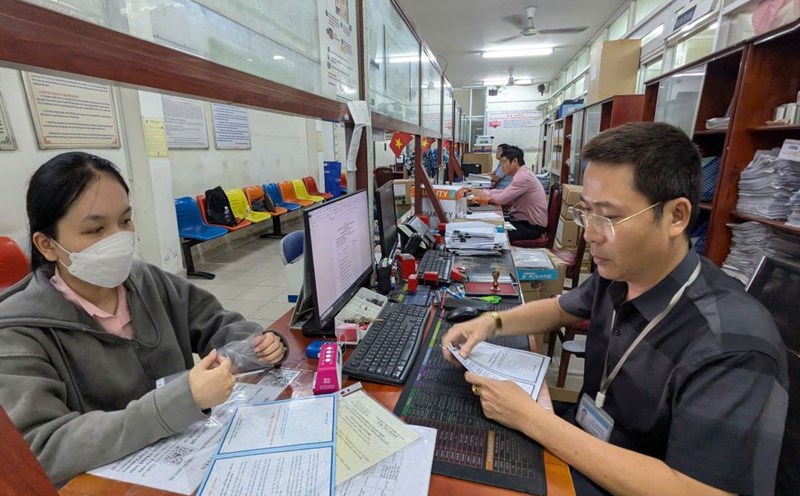Changing thinking, stimulating motivation to contribute
The Law on Cadres and Civil Servants (amended) has just been officially passed by the National Assembly, clearly demonstrating the innovative thinking when unifying the civil service regime from the Central to the commune level; strongly shifting to civil servant management according to job position; innovating the assessment and recruitment mechanism; expanding policies to attract and treat high-quality talents and human resources in the public sector.
Speaking with Lao Dong, Associate Professor, Dr. Do Phu Tran Tinh - Director of the Institute of Policy Development, Ho Chi Minh City National University - said that the principle of "make more and receive more, make less and receive less" first included in the law is a positive signal in reforming income policies in the public sector.
Previously, salary payment was mainly based on seniority and coefficients, creating an averageist mentality, lacking motivation and difficulty attracting talent. When switching to income distribution based on work efficiency, cadres and civil servants will have more motivation to contribute, and the quality of public services will also be improved" - he commented.
However, paying salaries based on results is not simply a change in the income calculation method but requires a scientific, transparent andQualified work assessment system.
According to Associate Professor, Dr. Do Phu Tran Tinh, this is the biggest challenge when implementing the new mechanism, because many current administrative tasks are determinative and difficult to qualify. Without a transparent and objective assessment tool, it is easy to lead to prejudice, negativity, or cause internal dissatisfaction.
KPI needs to be close to reality, attached to people's feedback
MSc. Nguyen Tuan Anh - public policy expert - said that applying the work performance measurement index (KPI) to assess cadres, civil servants and public employees in the public sector cannot be shaped by enterprise but needs to be designed flexibly, associated with local characteristics and specific goals.
MSc. Tuan Anh proposed 3 important groups of indicators to evaluate grassroots government officials including: operational efficiency, local governance quality and capacity, personal responsibility. Operating efficiency can be measured by the rate of timely procedure settlement, the level of online public service provision, and the administrative reform index. The quality of governance is reflected in the number of cases that have been completely handled, the satisfaction rate of the people, and security and order. Personal capacity is reflected through the number of innovation initiatives, participation in training, or the ability to coordinate in the political system.
An important point that Mr. Tuan Anh emphasized is to avoid the "performance disease" in building and implementing KPI. There needs to be a cross-inspection and supervision mechanism from the Fatherland Front, People's Councils and especially online feedback from people who directly benefit from public services.
"Evaluation data should be made public and compared regularly. We cannot leave the data situation "beautiful" but people are not satisfied" - he said.
In addition, KPI must also be associated with a clear reward - penalty mechanism: Those who complete the target will have increased income and timely rewards; those who do not complete must be transferred or handled appropriately. At that time, KPI will truly be a motivation tool, instead of becoming a pressure or being distorted into a reporting "beautification" tool.
Associate Professor, Dr. Do Phu Tran Tinh proposed a number of solutions to ensure effective income policies according to results: Building a value-added assessment index system with the participation of many parties; enhancing digitalization and automating assessment tools; giving autonomy to public units in income allocation; ensuring fairness in career opportunities.











